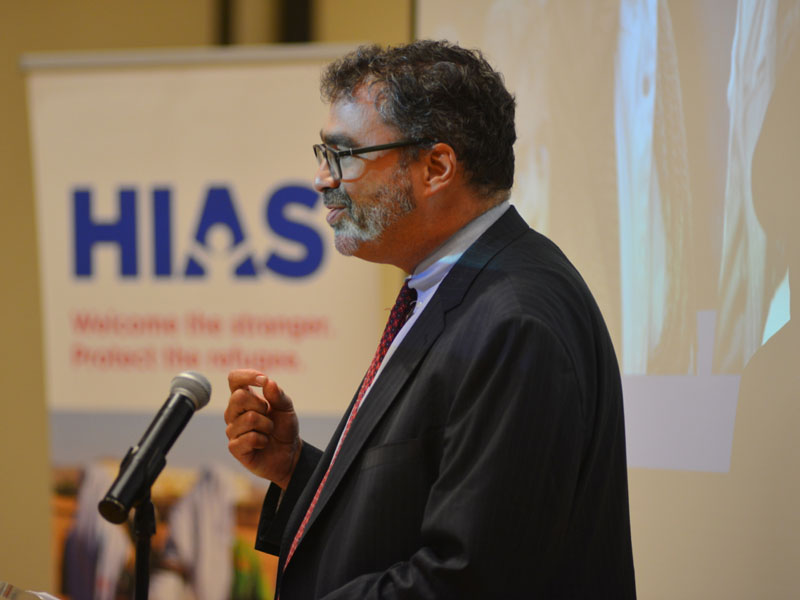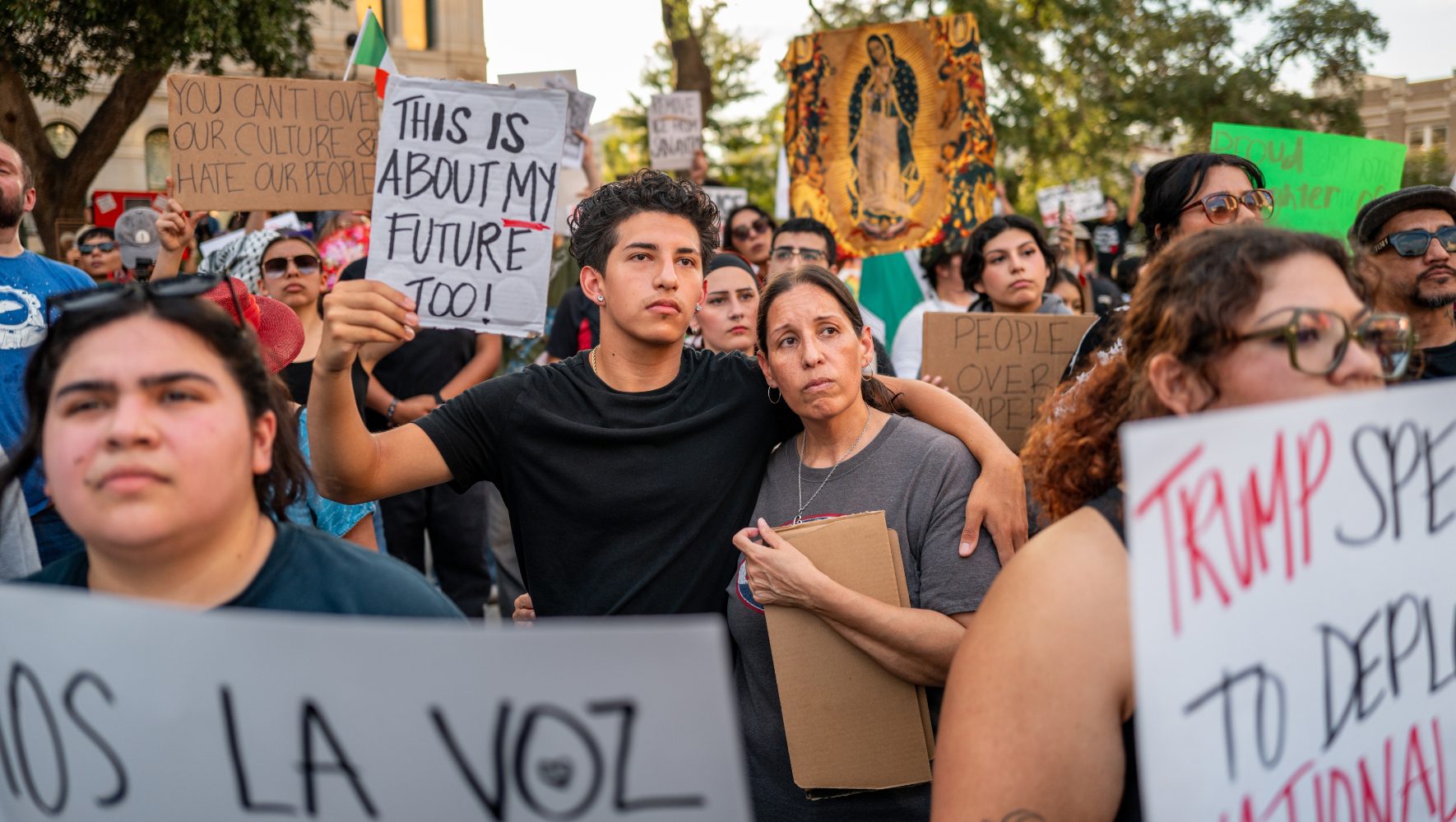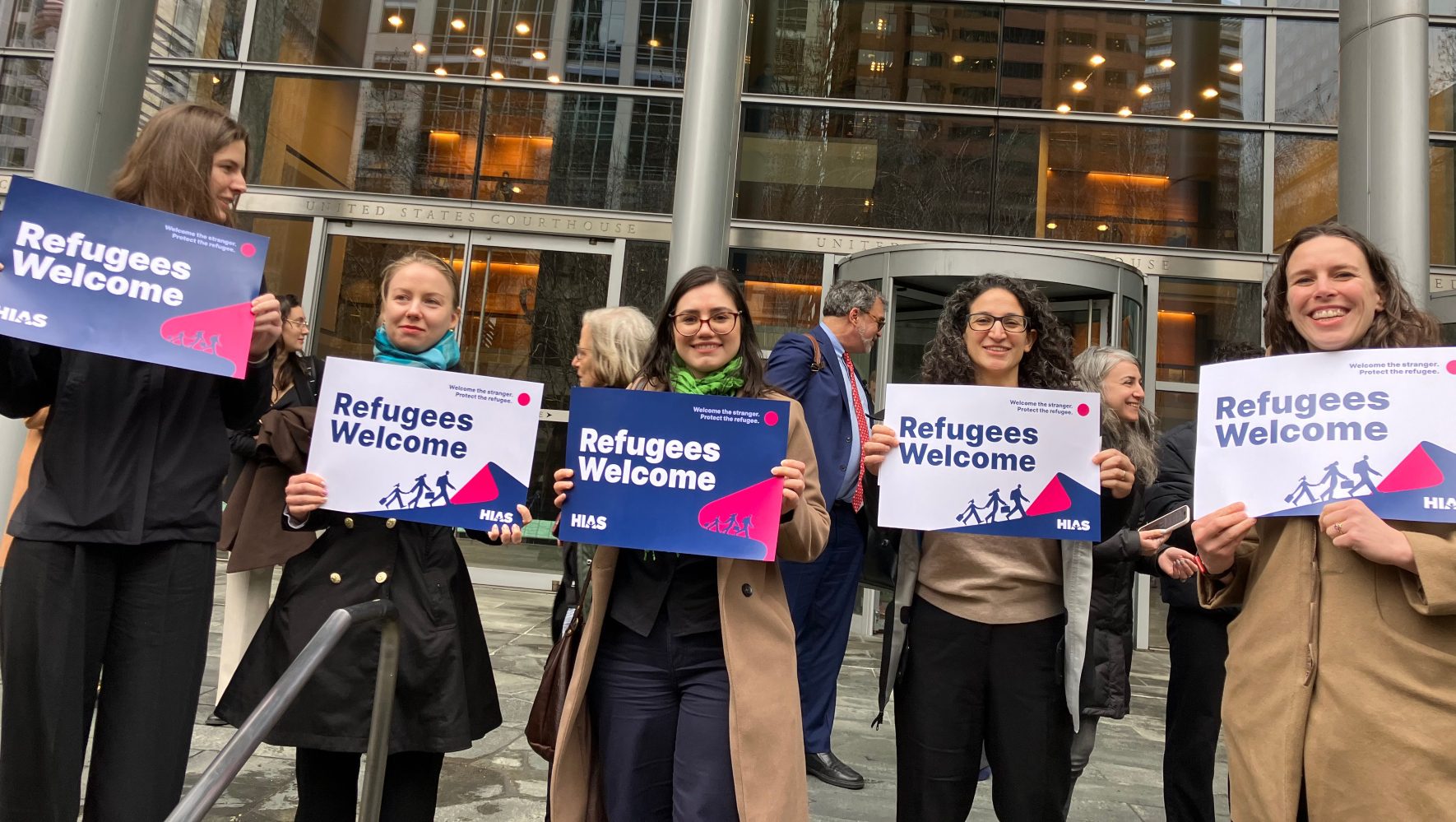Afghan Humanitarian Parolees Are Refugees, Hetfield Writes to Washington Post
Sep 20, 2021

Mark Hetfield (pictured in 2016) says Afghan humanitarian parolees should not have to pay to reunite with their families.
(Gili Getz for HIAS)
In a letter to the editor of the Washington Post, HIAS President and CEO Mark Hetfield argued that Afghan humanitarian parolees should have access to the same rights and benefits as refugees. The letter was first published online and appeared in the Post’s print edition on Sept. 18.
They do not have “refugee” stamped on their documents, but Afghan humanitarian parolees certainly meet the refugee definition: All have a well-founded fear of persecution. Moreover, they fled with only the clothes on their back, often leaving even spouses and children behind.
By law, refugees have clear and fee-less pathways to reunite with family. Parolees, however, have only one option: to pay a $575 fee per relative and pray that U.S. Citizenship and Immigration Services exercises favorable discretion to reunite the family. Fee waivers are available, but that adds further work, delay and uncertainty. USCIS cannot overlook its complete dependency on fees. Through hidden surcharges, fee-paying non-refugee immigration applicants — not taxpayers — cover all costs of refugee adjudications and fee waivers.
The Post is correct that Congress must act so parolees are not more disadvantaged than refugees. But this should include family reunion without unaffordable fees.
The Post recites past uses of parole. All pre-date the Refugee Act of 1980, passed with near unanimity to establish a refugee admissions program so Congress would no longer have to keep cleaning up messes from such ad hoc uses of parole. The refugee program, however, has become so mired in red tape, and was so eviscerated under President Donald Trump, that President Biden could not use it to respond to this crisis. It must be built back better.



